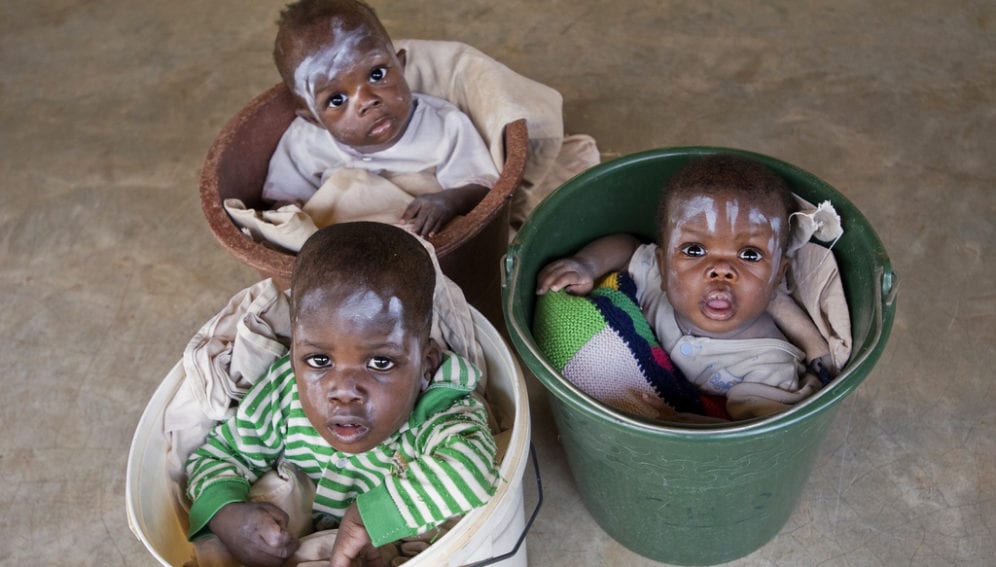By: Joshua Howgego
Send to a friend
The details you provide on this page will not be used to send unsolicited email, and will not be sold to a 3rd party. See privacy policy.
Last week a collection of academics met in the opulent surroundings of the United Kingdom’s Royal Society of Medicine to mull over the challenges of generating and implementing research evidence related to the health components of the post-2015 development agenda.
On its second day, several of the sessions focused on governance challenges and I sensed a strange mixture of anxiety and hope in the atmosphere.
We’ll start with the hope. Economist Ian Goldin of the Oxford Martin School kicked off the proceedings. “I believe in the release of a collective genius,” he said. “And as the world becomes ever more connected, I’m hopeful that ever more smart people will be released to deal with the grand challenges that we face.” He was talking, of course, about problems like our ageing population and food security in Africa.
Then came the more worrying thoughts, though. Goldin explained that our ever more connected world brings dangers with it. More people have been empowered, leading to the rise of dangers like cybercrime. But he said the best response to such threats was not to shy away from increased connectivity, but to manage our governance with a level of coordination to match it.
“The problem is that individual states, acting rationally, can produce actions collectively that are irrational,” he said. He gave the figurative example of four territories all drawing water from a single lake. On their own, they might act sustainably, but without coordinating their actions there is a risk of running that lake dry.
It seems reasonable to think that health problems such as antibiotic resistance would benefit from a more joined-up global governance. After all, resistance built up in one area can easily spread. But Goldin said that the international systems of governance we currently have are outdated and incapable of dealing with these problems.
“Don’t wait for the politicians. They don’t know what they’re doing. The best thing we can do is give them a plan: say ‘do this’. And then sometimes, they’ll do it”
Jeffrey Sachs, UN
“I love the UN declaration of human rights, it’s a beautiful thing,” he told the audience of medics. “But if I was in Syria right now I would not depend on it to save my life.” Human rights is a separate issue of course, but I took his point: the UN doesn’t always have the clout needed to effect change.
Yet Goldin said that where the UN and other bodies often fail, scientists could succeed. He called on professional and scientific bodies, unconstrained by bureaucracy or voting publics, to do the hard thinking needed to tackle grand health challenges.
But of course many scientific groups already provide evidence to policymakers, and (for various and sometimes good reasons) this is not always followed. When this point was put to Goldin he cited his creation of the Commission for Future Generations, a collection of leaders based at the Oxford Martin School, UK, which was set up specifically to think about how governance could be better organised to combat long term global challenges that span political terms. He said this body has suggested that more power be given to cities to govern themselves, for example. And hinted that independent professional bodies similar to the UK’s National Institute for Health and Care Excellence (NICE), which provides guidance on best practice for health care commissioning in the United Kingdom, could be seeded more power.
I wasn’t entirely convinced about the practicality of Goldin’s suggestions, but I had to admit that global governance systems do not seem to have evolved at the same pace as big global challenges.
Later, UN advisor Jeffrey Sachs, echoed this view. In response to a question from the floor, asking who would lead the path to the Sustainable Development Goals, he said: “Don’t wait for the politicians. They don’t know what they’re doing. They’re not interested in leading. They have no time, no staff, no scientific capacity. The best thing we can do is give them a plan: say ‘do this’. And then sometimes, they’ll do it.”
Both Sachs and Goldin were united in calling for scientists to join forces to develop the knowledge and plans needed for sustainable development. In fact the message that emerged from the meeting — both encouraging and terrifying — was that, if they don’t, maybe no one else can.














